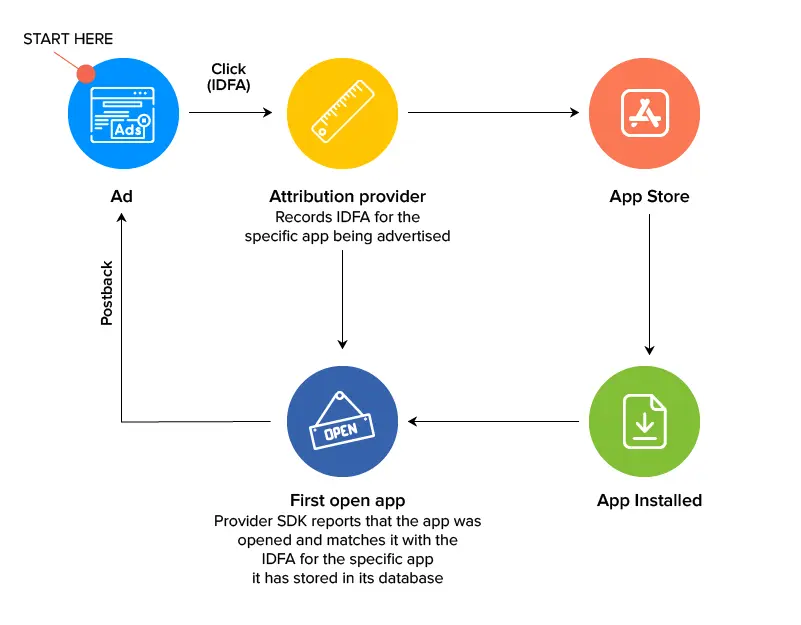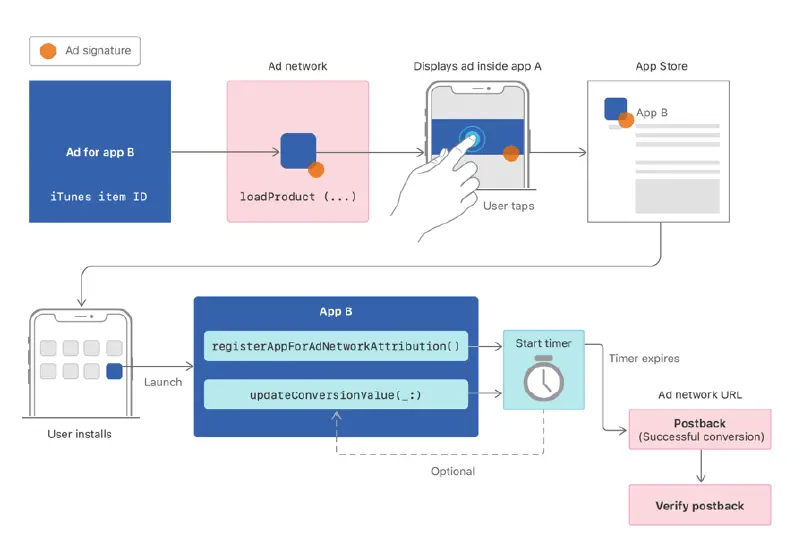

Apple has a habit of introducing revolutionary changes year after year with every new operating system launch. 2020 was no different. In fact, in many ways, it was the most revolutionary year for Apple in terms of advancing user experience and privacy.
In case you missed out on the features that the new iOS 14 updates comes with, head on to our article – How to prepare your app for iOS 14.
However, we can presume that by this time you must have gotten acquainted with the key aspects of iOS 14 privacy features. But do you know that the update will carry an impact on the process of how your partnered iPhone app development company handles your app development and distribution?
Let us talk about it in detail in this article today.
The biggest announcement that Apple has made in terms of the iOS update that will be made next year is giving users the option to clock IDFA identifier at the application level. A move that strengthens the tech giant’s position in the Apple vs Android, which platform is more secure debate, would require the apps to ask the users for permissions to gather and share users’ data.
There are other privacy-related moves as well, but let us attend to IDFA first.
Identifier for Advertisers is a unique identifier for all mobile devices which is used for targeting and measuring the effectiveness of the advertisements on a user level across all the mobile devices.

Keeping the above data in mind, many entrepreneurs are planning to start a mobile app centred business and investors are funding different types of mobile apps.
For every app install, users will have to opt in to IDFA. When developing apps for iOS 14, app publishers will have to provide a summary of privacy practices on the basis of which users will decide whether they want to opt-in IDFA or not.
The impact of this update lies in ad campaign becoming incapable of performing control recency, optimizing and measuring ad performance, or perform behavior-based segmentation. Additionally, the move is contributory to consent fatigue, which would increase the instances of users declining the data view request.
The impact of the update on the advertisers will be two-fold –
iOS 14 comes with an updated SKAdNetwork interface that offers a method for Apple to notify the ‘ad network’ when a campaign creates app install conversion.
The impact of this update is the negligence of another type of app conversions for which a mobile app campaign would want to optimize other than app installs.
Presently, iOS users have control over which apps access their location through the ‘Location Service’ setting. The new update will allow the users to opt-out of precise location sharing. And when that happens, only approximate geolocation data will be shared with the apps.
Apple presently comes with the feature of Intelligent Tracking prevention or ITP which blocks cross-domain tracking. With iOS 14, there will now be a ‘Privacy Report’ passed to the users in addition to the ITP. It will tell the users which companies it is blockchain from viewing their data.
The impact of this update is more image-based than anything else. Brands have multiple use cases for tracking users – recency control, frequency capping, behavioral-based targeting, spend attribution, etc. But the update will give the users a perception that every company has the same tracking intent.
iPhone app development has always been one of our strongest suits. We have always one of the first iOS app development company to run hypothesis testing on all the new updates. iOS 14 version is no different.
Our team of iOS app developers has deep-dived into how iOS 14 impacts app creation and promotion and while we have looked into the changes that we will have to make the app ready for iOS 14.
The primary step for us was to peruse the platform-wise recommendations for the iOS 14 update.
The documentations helped us get on top of the changes that were coming with iOS 14 and what we needed to do to prepare for them. Keeping technicalities aside, let us share our plans in terms of making your app pass Apple’s updated security principles in layman’s terms. But first thing first, let us look into the ways the app ecosystem is going to change in 2021.
The way iOS 14 influence app development will see the following things happening –
In light of these changes, the first thing that we will be focusing on is ensuring that the SDKs we use across our iPhone app development services are up to date. Virtually every SDK – analytics, attribution, and ad monetization, etc. will have to be updated for accommodating iOS14.

Apple has released SKAd Network that enables Apple to manage the attribution passed to the Registered Ad network. While there are ways to optimize and scale marketing with SKAdNetwork, like how it helps identify redownloads and track attribution, they are not very ideal because of multiple reasons –
Another way brands can negate the iOS 14 impact on app distribution is by relying on the users’ truncated IP addressed for advanced contextual targeting and attribution. This way, they won’t have to identify any individual user.
If you are looking for an iOS application development company that is skilled to help migrate your existing application to iOS 14 while having a complete understanding and solutions to how iOS 14 impacts app creation, reach out to our team.
iOS app development refers to the process of creating mobile applications for Apple's iOS operating system, which powers devices such as iPhones, iPads, and iPod touches. It involves designing, coding, testing, and deploying applications specifically tailored for the iOS platform.
Flexion Infotech is ensuring that the SDKs used in their iPhone app development services are up to date. They are focusing on updating analytics, attribution, and ad monetization SDKs to accommodate iOS 14.
With the update, users will have to opt-in to IDFA for every app installation, and app publishers will need to provide a summary of privacy practices. This update impacts ad campaigns, making it harder to control recency, optimize and measure ad performance, and perform behavior-based segmentation.
The Privacy Report feature provides users with a report on which companies are tracking their data, in addition to the Intelligent Tracking Prevention (ITP) feature. This update affects brand tracking practices and may create a perception that all companies have the same tracking intent.